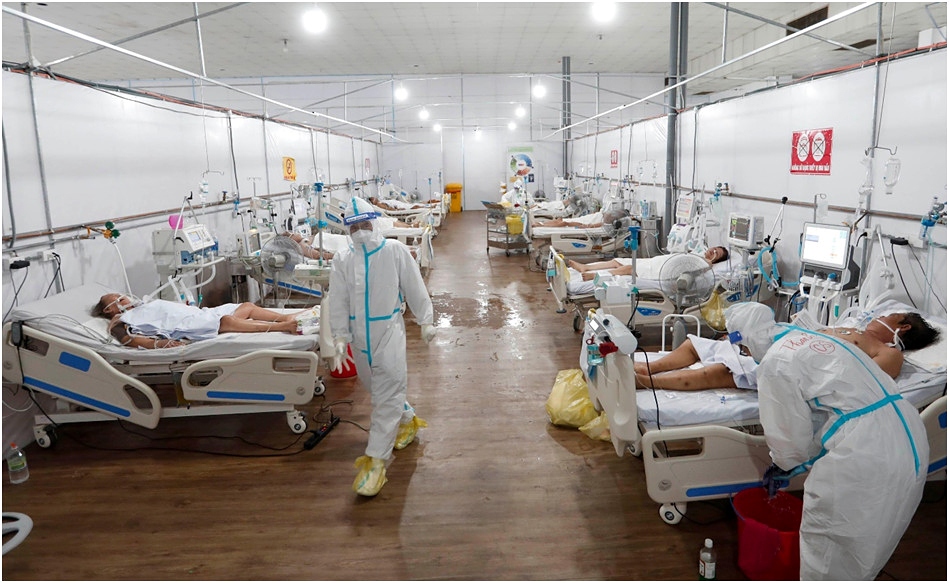New COVID-19 subvariants reported, HCM City ready to reactivate field hospitals
VOV.VN - Health officials in Ho Chi Minh City are considering reopening field hospitals to receive and treat coronavirus patients following the emergence of new subvariants of the Omicron variant – BA.4 and BA.5 – in the city.

The number of COVID-19 cases in Vietnam and Ho Chi Minh City in particular is on the rise again due to the appearance of two new subvariants BA.4 and BA.5 of the Omicron.
In Ho Chi Minh City, the first cases of BA.4 and BA.5 subvariants were detected on July 4 through random testing by the municipal Centre for Disease Prevention and Control (HCDC).
HCDC reported the number of new COVID-19 cases in the city has increased slightly over the past three weeks, with more than 50 cases detected per day compared to approximately 30 cases previously.
“The local health sector has developed plans to deal with a resurgence of the disease,” said Thien Quynh Nhu, an official of the municipal Department of Health.
“The Ho Chi Minh City Department of Health is ready to reopen field hospitals in case the number of F0 cases rise again,” she said. “The health sector is readying scenarios to receive and treat F0 cases in the near future.”
Ho Chi Minh City, the most populous locality in Vietnam, established many field hospitals last summer to ease pressure on other hospitals when the coronavirus outbreak reached its peak.
With the virus being brought under control months later, most of these field hospitals were dissolved, and F0 cases could come other hospitals for medical examination and treatment.
Currently, the three-storey field hospital No. 13 with 1,000 beds is suspending admission, but it has been asked to get services ready to use, said Nhu.
“Most importantly, people strictly observe COVID-19 prevention measures such as wearing masks, disinfecting when going to public places, and increasing vaccination,” affirmed Nhu.
Subvariants BA.4 and BA.5 are said to spread 10-13% faster than Omicron relatives BA.1 and BA.2, and indicate the potential for reinfections to become more common.
However, most clinical data suggest that vaccination can prevent disease progression and the need for hospitalization.

